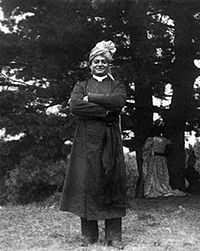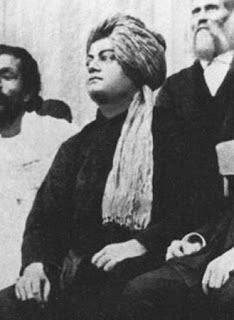Swami Vivekananda 150 - A Tribute - concluding part

He was dead against sectarianism. In his own words, “ All this fight between sects and all those differences in dogmas will not be remembered anymore, and quarrels between your religion and my religion will have vanished altogether, when mankind will understand that there is but one eternal religion, and that is the perception of the divine within .” We can see in the world around us a massive change, compared to the late nineteenth century in which he appeared. India is now more self confident and of late has seen tremendous activity. Indian women were not only actively pursued education soon after the beginning of twentieth century, but also participate side by side, along with their male colleagues, in the freedom movement. His ideals of helping others have taken a firm root and countless voluntary organizations have sprung up, who, though not explicitly subscribing to his ideals, nevertheless perform work which would be much to his liking, in various spheres. Interfaith so


-1891-2.jpg)


